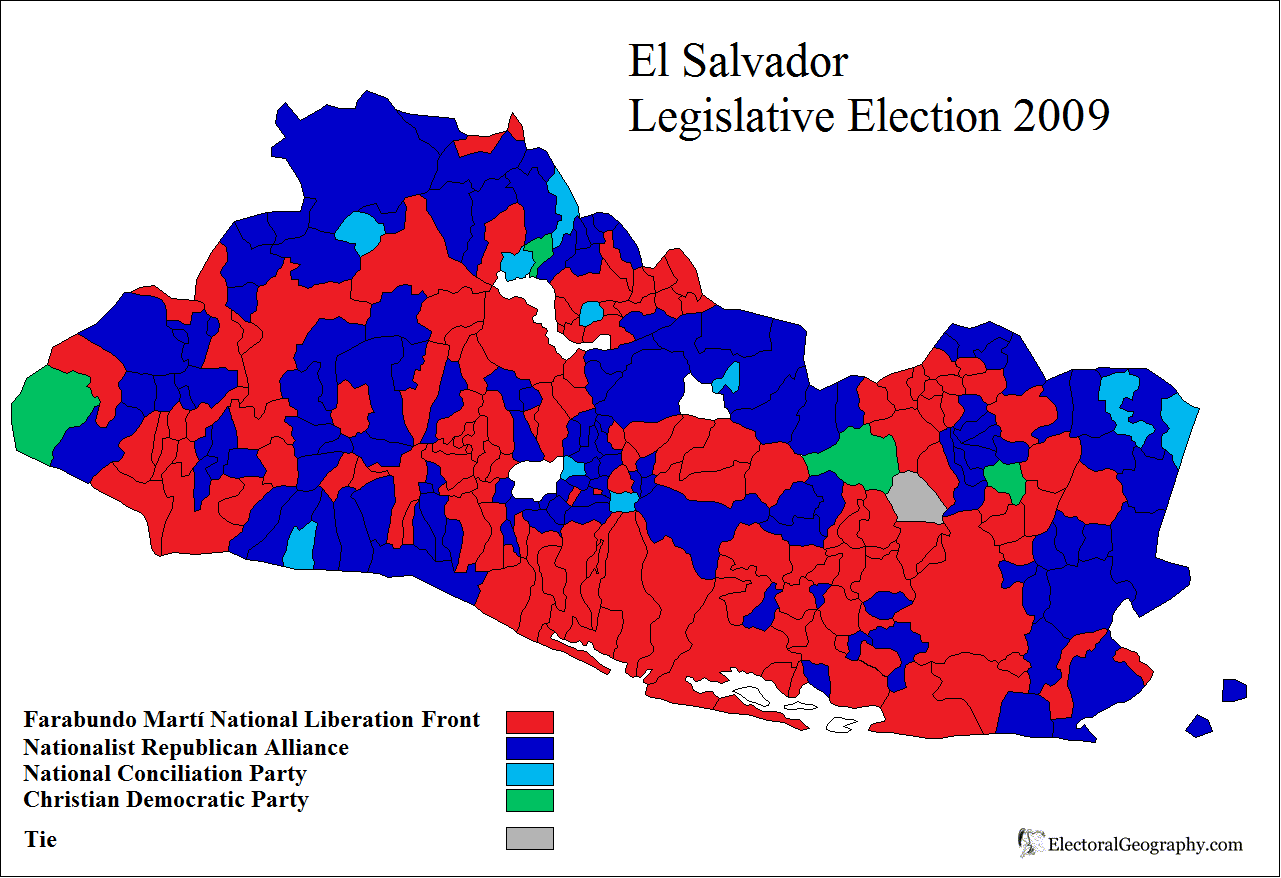As part of a number of electoral reforms being proposed by civil society, one that stands out, especially as Legislative and Mayoral elections approach, is the proposal to accept multi-party City Councils.
 |
| Local election results 2009 |
Currently, El Salvador is the only country in Latin America that functions on simple majority elections for city councils. That means that when one party wins the local elections and takes the mayors office, every person on the City Council comes from that political party. Whereas, in most other countries in Latin America, the City Council is made up of representatives from different parties depending on how well they were represented in recent elections.
For example, in the municipality of San Salvador in 2009, the ARENA party won the elections. This means that the mayor, the trustee, the 8 aldermen, and the 8 alternates are from the ARENA party. If this new proposal were to be accepted in El Salvador, the San Salvador City Council in this example would consist of, the ARENA mayor, the ARENA trustee, 8 ARENA aldermen, and instead of 8 ARENA alternates there instead would be 8 more aldermen but from the FMLN party, which correlates directly to their representation in the elections.
Those who support this proposal point out that no change would have to be made to the Salvadoran Constitution as the Constitution states that: “the Government is republican, democratic and representative” and that “the political system is pluralistic and this is expressed through political parties, which are only and instrument to exercise the peoples representation within the government.”
Other arguments in favor of this system are:
- It strengthens political representation
- It works to depolarize society
- There would be more transparency within local governments
- More stability among local governments when different political parties win the elections
Overall it is said that this system would strengthen representational democracy. The ARENA party would have representation in 261 out of 262 municipalities, the FMLN in 251, the Christian Democrat party in 104, the National Conciliatory Party in 172, the FDR party in 6 and the Democratic Change party in 12.
One criticism of this system would be that women's participation in local governments would diminish since women are often times included in City Councils as alternates. Some have asked that what will happen when political parties share seats on the City Councils and place mainly men in those seats. A representative of the Social Institute for Democracy (ISD), a former SHARE counterpart, responded to that concern by stating that a comprehensive electoral and political party reform law, that they are working towards, would include a provision that would require equal participation from men and women in all political parties. Currently the Democratic Change party is the only party with that provision. Yet, such a comprehensive reform law is still a long way off.
The ISD and other organizations and institutions working towards the plural party City Council systems hope to implement this change within the next few years. If not by next years elections, then by the 2015 mayor elections.

No comments:
Post a Comment